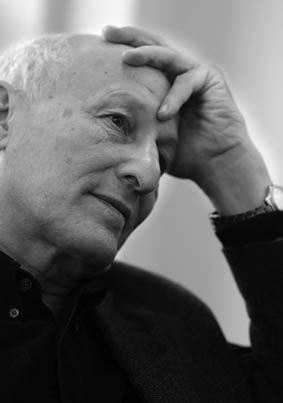Bar-On, Dan

Dan Bar-On was born in 1938 in Haifa to parents who had left Nazi Germany in 1933. He was a member of a Kibbutz (Revivim) in southern Israel for 25 years where he was an educator, worked with Holocaust survivors’ families in the Kibbutz clinic, and served in leadership positions in the Kibbutz. He obtained his PhD in Psychology from the Hebrew University in Jerusalem in 1981 and joined the department of Behavioral Sciences at Ben-Gurion University of the Negev. Throughout his career he focused on intergroup relations and peace-making. He pioneered the analysis of the dynamics of reconciliation between descendants of the Holocaust and descendants of Nazi perpetrators, and between Israelis and Palestinians.
Even at the beginning of his professional career, in the mid-1980s, he sought to promote better relations between members of adversarial groups. He did so by addressing the psychological wounds associated with years of intergroup violence such as that experienced by Jewish victims of the Holocaust, and Israelis and Palestinians locked into a protracted conflict for more than a century. He pioneered the analysis of the emotional processes of intergroup reconciliation in an era dominated by the view that intergroup conflict ends when adversaries are able to build a bridge over conflicting interests.
Consistent with these interests, in 1985 he established ongoing dialogue groups between descendants of Holocaust survivors and descendants of Nazi perpetrators. The analyses of these encounters was published in 1989 in a book entitled “Legacy of Silence: Encounters with Children of the third Reich” (Harvard University Press). His commitment to the understanding and promotion of processes of intergroup reconciliation is underscored by the fact that he initiated these efforts towards reconciliation with bearers of the Nazi past in the 1980s, when such efforts were not well-regarded by the general public, especially among members of the victimized group.
In subsequent years he extended and deepened his interest in processes of reconciliation by establishing the TRT project (To Reflect and Trust) where his work on dialogues between descendants of Jewish victims and Nazi perpetrators was extended to promoting reconciliation between Israelis and Palestinians. The focus of this work centered on the different narratives that Israelis and Palestinians hold on the causes and course of this protracted conflict. To further the understanding and promotion of reconciliation between Israelis and Palestinians he joined Prof. Sami Adwan from Betlehem University in establishing PRIME (Peace Research Institute in the Middle East) of which both were co-directors. This was the first, and only, joint Israeli-Palestinian research institute. One of the institute’s more important projects was the creation of a structured educational program in which Israeli and Palestinian children confronted the narrative of the “other” about the conflict, alongside their own group’s narrative. The importance of this effort was recognized by the Italian government which awarded the 2001 Alexander Langer prize to Bar-On and Adwan.
The excellence and innovation of Dan’s life-long work on intergroup reconciliation has been recognized by other academic and governmental bodies. In 1998, he was awarded an honorary doctorate by Stockton College in New Jersey, where he was also the incumbent of the Ida E. King chair for Holocaust and genocide studies (2002). In his home institution of Ben-Gurion University, he was the incumbent of the David Lopatie chair for post-Holocaust psychological studies. In Germany in 2002 and 2003 he was awarded the Cross of Merit (Bundesverdienstkreuz, 1. Klasse) and the Eric Maria Remarque Peace Prize. His contributions to the understanding and promotion of reconciliation between adversarial groups has been published in many scholarly journals and in seven books. His books have been published/translated in English, Hebrew, German, French, Japanese and Chinese.
The social psychology that Dan was doing was always relevant to the world we live in and has highlighted the responsibility of our field to make it better. In his work he highlighted a social psychology that enhances our understanding of intergroup relations and the amelioration of the emotional consequences of intergroup conflicts. Current methodologically rigorous and conceptually innovative analyses of intergroup reconciliation and peace-making owe much to the pioneering efforts of Dan Bar-On.
Dan died prematurely in 2008 leaving behind a loving family, colleagues, friends and students, and a legacy of social psychology that is socially relevant and responsive.
